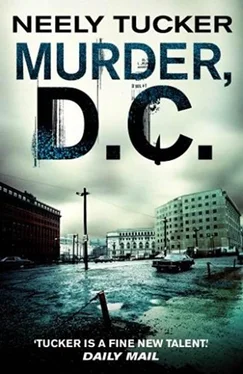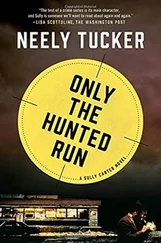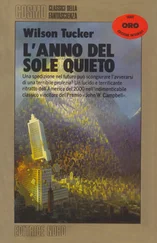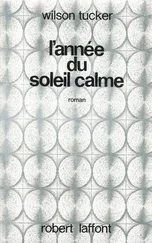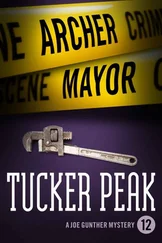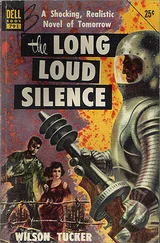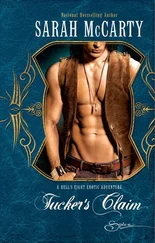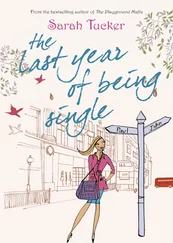She coughed drily, and finally said, “I think it would be helpful if you came by and I explained some things to you.”
Holding the phone in his right hand, he pumped his left fist, the interview he had to have, falling right in his lap. The tic in the back of his head loosened some more, and he felt himself coming into the groove of it, the mojo you had to have for a story like this.
“You want to come right now?” she asked.
“That would probably be best,” he said.
“There are all these television trucks out on the street, but I don’t think I want to go outside.”
“No, ma’am. I don’t blame you.”
“But you’ll come here? You can come to the front and ask for Ivan. He’s from the funeral home. He has the list.”
“The list?”
“Of people who can come in.”
“Right.”
“I’ll tell him to put your name on it. You’re not going to bring anyone else in with you, are you?”
“It’s your house, ma’am.”
“Okay. Okay. And what did you say your name was again? I’m sorry, I know you told me, but it’s just flown right out of my mind. I can’t seem to re-”
“Sully. Sully Carter.”
“From the paper.”
“That’s me. I’ll come look for Ivan, and he’ll bring me to you.”
“Right. Right. And when did you say you were coming?”
“Right now, Mrs. Ellison. What’s the address?”
“The address. Of my house? It’s ah… We moved over here years ago, it’s a nice street. Could you ask someone when you get here? They can tell you?”
“Yes, ma’am. That won’t be a problem. I’m walking out the door.”
***
He hung up and then clicked the phone back on and dialed the paper’s news research desk, moving upstairs for a change of clothes. Susan picked up as he made it to the top of the steps, and he said, “Hey, it’s me, redhead,” and then, “I need an address,” and gave her Delores Ellison’s name.
“Just a sec,” she said, and he heard her keyboard clacking. “Why are you breathing hard?”
“I just came up the steps.”
“Twelve stories?”
“My leg,” he said.
“Get off your ass a little more,” she said cheerfully. “Here it is-1729 Crestwood Northwest. You know where it is? The Gold Coast, just off Sixteenth?”
“You mean like Crestwood the street, not just the neighborhood?”
“Yeah. It’s this half-circle thing. Go across that bridge on Connecticut, the one with the lion statues, hook a left on Shepherd. Crestwood is your first left.”
***
The home of the Ellisons, D.C. society for a century, was among a tree-shaded collection of brick houses, well spaced, all along the right side of the street, with Rock Creek Park on the left-hand side, dropping away steeply down a hill, a forest in the middle of the city. A long line of black-hued limos and Lincolns and BMWs and Mercedes and Escalades and other Cadillacs lined the curb, people visiting Delores, the house with the hub of black-suited drivers congregating in the brick driveway, a pair of television trucks out front.
It was a handsome, two-story, acid-washed brick colonial, dark shutters, a two-car garage, manicured lawn, and arched windows. The add-on to the downhill side, also brick, featured a huge bay window. The open curtains allowed a view of a baby grand piano. He idled the bike past the house, away from the television trucks, and tucked it between a couple of the black Lincolns, killing the engine quickly, as even that seemed too loud for the address.
“Well-bred,” he said softly to himself, taking the helmet off, strapping it to the bike. It was a well-bred, old-money kind of place. He wondered if anyone living on the street had considered the middle distance of the western prairie at sunset, driving at a million miles an hour due west, the warm Pacific somewhere ahead, the endless rolling Plains, and he decided they probably had not. This was the East Coast, closed in and sheltered, a narrow horizon, the idea of a world beyond the Beltway both obscure and insignificant.
The cluster of drivers at the end of the driveway eyed him up as he walked past, mostly black but some white, the guys who didn’t speak much English standing off by themselves, propping their patent leathers on the bumper of a Lincoln, muttering in what was probably Amharic, if he guessed right. There wasn’t anybody who looked like an Ivan, so he just nodded and they nodded back, looking at the bike and letting out on the exhale of a smoke, not giving a damn about who he was or why he was here. He headed to the house like he was five minutes late, not even glancing at the television trucks. He didn’t want anyone over there calling out his name, piggybacking their way in.
The door was opening as he approached-people leaving-and he quick-stepped onto the patio. As he did, a sturdy black man appeared at his left. It was like he materialized, coming out from behind a column or something on the porch. His face was set in a grimace and he was dressed in a dark suit and sunglasses. He shot an arm in front of Sully’s chest, like the rail across train tracks stopping traffic, and looking at him through the glasses, said, “No.”
Sully took it with a smile, letting the man get in front of him, coming to a stop, raising his eyebrows in a gesture of expectation.
“Ivan?” he said, “Hey. Ms. Ellison said you’d be looking for me. I’m on the list.”
***
The door, when it swung open again, he couldn’t help but think medieval , it was so oaken, so heavy, the air behind it so dark, so dank. Ivan followed him in and closed it behind them, and the low murmur of voices came up in the crowded entryway, the drawing room set off to the right, also heavily populated. Ivan put a hand gently on Sully’s back, guiding him down the hall through a knot of hushed, well-dressed people, most of them holding stemware filled with orange juice, half of them turning to look at him, a new face in the gloom.
They made their way off the hallway, through the drawing room, the house opening before him in warm earth tones, a stairway now directly in his path, heavy wooden spindles, another parlor to his left. The illumination was from a series of lamps rather than overhead lighting, the curtains drawn, adding to the funereal air. The paintings on the walls were oils of ancestors and seasides, an island with Cape Cod houses along the dunes, and it dawned on him, thirty seconds in the door, that the Ellisons owned rather than rented on Martha’s Vineyard, a nice summer place of the type for which he could not afford a single mortgage payment. A Supreme Court justice, that one who always looked constipated, sat on a couch on his left, the No. 3 in the Justice Department conferred with a serious-looking woman in a suit, the head of the city council was to his right, a couple of congressional reps, a silver-haired guy who might be a senator, a lot of middle-aged men and women in expensive suits… Sully guessed they were from Stevens’s law firm, Hill staffers, or corporate honchos he didn’t know. Robert Barnes, the mayor, corrupt soul that he was, materialized out of the gloom, a flicker of a smile crossing his face. He took Sully’s right hand to shake and patted his shoulder with his left as he passed, and Sully wondered if he learned that grip-and-pat move in some sleazy politicians’ school.
They kept moving deeper into the house, passing more knots of people, Ivan’s hand gentle but steady on his back. They stalled for a moment and a woman in black slacks, white shirt, black vest, and a bow tie glided up on his left, a silver tray with the glasses he’d seen a moment ago. He nodded thanks and took an orange juice-he always accepted hospitality in a subject’s home-but it did cross his mind that Delores Ellison either had staff or had someone call a catering company within hours of finding out her only child had been murdered. That was pretty brutal social efficiency.
Читать дальше
